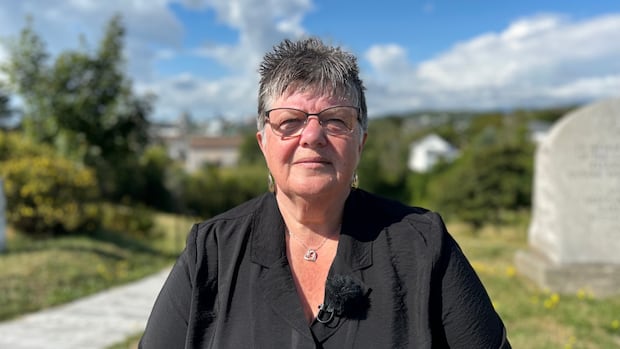Deborah Cyr began walking five times a day after learning exercise helps to prevent the recurrence of cancer.
The Saint John resident is a colon cancer survivor who participated in a study by the Canadian Cancer Trials Group. The research was led by the group of Canadian oncologists and conducted across six countries.
The goal was to explore the impact of exercise on the lives of patients recovering from colon cancer. Results suggest people who followed structured workout routines could see a 28 per cent reduction in cancer recurrence and a 37 per cent lower risk of death, according to the study.
The study’s 889 participants, including Cyr, were randomly divided into two groups after completing surgery and chemotherapy. Half were paired with personal trainers while the other half received written materials promoting healthy living.
“I had to do an exercise program,” Cyr said. “I’m really not a sports minded person — I’d rather sit — but I tried a few things … and walking with my dog seemed to be the best.”
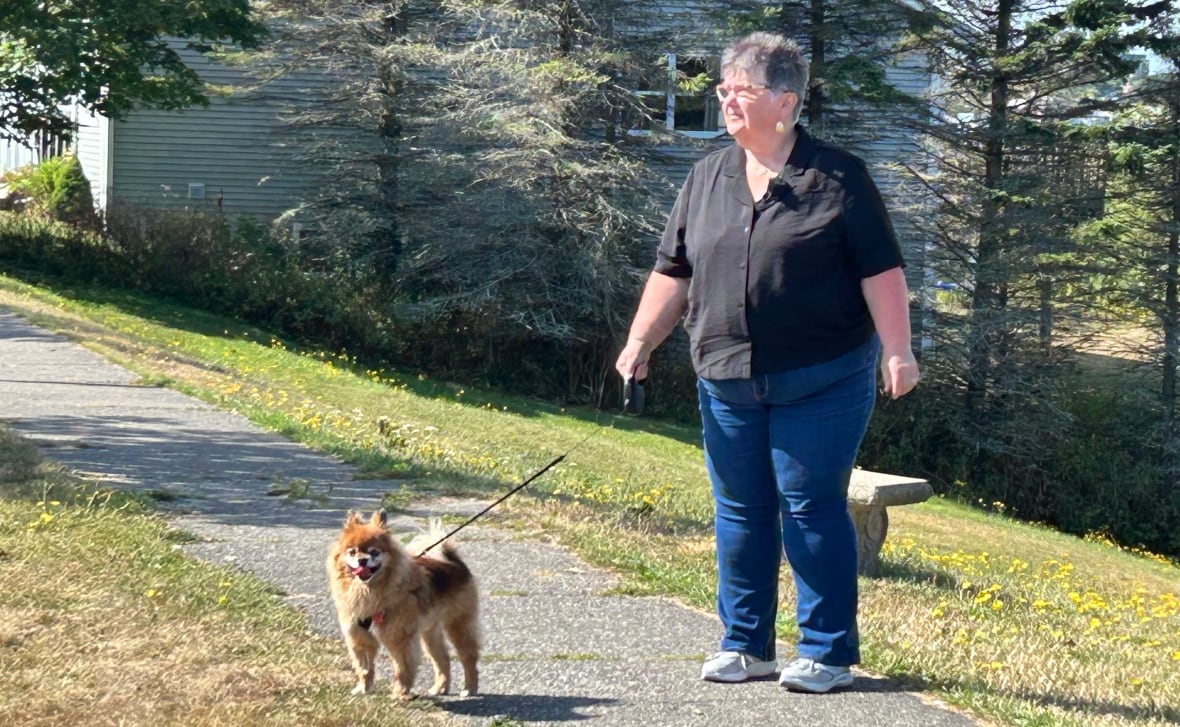 Cyr logged her walks for six years while participating in the cancer research. (Rhythm Rathi/CBC)
Cyr logged her walks for six years while participating in the cancer research. (Rhythm Rathi/CBC)
For six years, Cyr logged every walk in addition to other physical activities as part of the study. She also visited the hospital twice a year, where two physiotherapists tested her strength, balance and cardio for improvements, she said.
“They kept a really good diary of it.”
She said the regular checkups made her feel better doing daily chores and made her accountable for her daily workouts.
WATCH | ‘It feels great and I wish I had done it sooner’: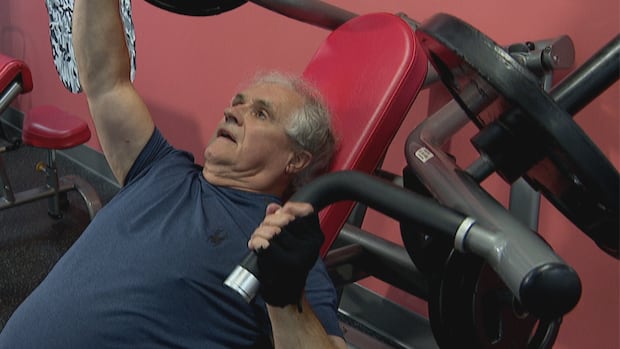
Study finds exercise improves life expectancy, decreases recurrence of colon cancer
Patients recovering from colon cancer say exercise helped them to get better. Research shows it also decreases the risk of death and recurrence of cancer.
Walking has become a daily habit for Cyr and her pet Pomeranian named Mitchell, who accompanies her four to five times a day, she said.
“It feels great and I wish I had done it sooner.”
Dr. Anthony Reiman, an oncologist and professor at Dalhousie University and the University of New Brunswick, was the study’s lead investigator for Saint John.
He said the study began almost two decades ago and is still ongoing. The key results were published in the New England Journal of Medicine this year.
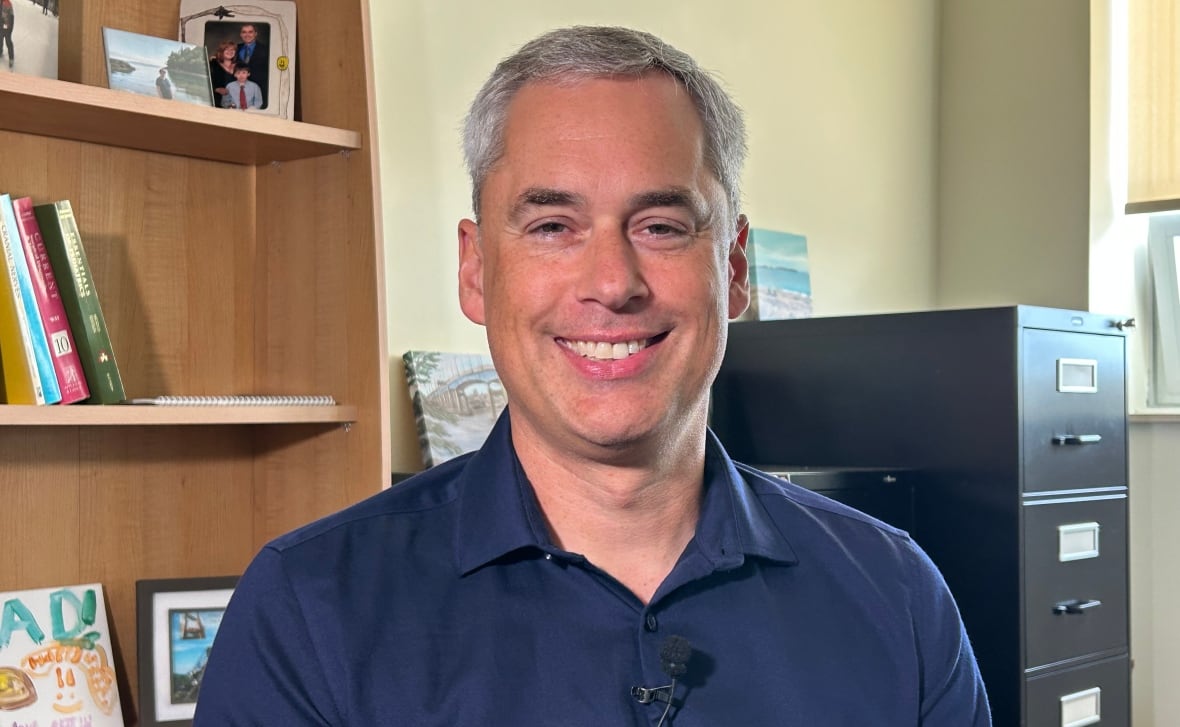 Dr. Anthony Reiman was the lead investigator for Saint John in the colon cancer research. (Rhythm Rathi/CBC)
Dr. Anthony Reiman was the lead investigator for Saint John in the colon cancer research. (Rhythm Rathi/CBC)
“What we learned from this study is that if you really provide support and a structure to that exercise over a prolonged period of time … that will translate into longer life expectancy and fewer cancer recurrences.”
Reiman said it is common for recovering patients to ask about post-treatment physical activities, as they are looking to regain strength and stamina to improve their quality of life.
“I think that, you know, [structured exercise] is a cancer treatment and we should start thinking about how our publicly funded health-care system can provide exercise programs to our cancer survivors.”
The study recommends two-and-a-half hours of aerobic exercise per week on top of the recovering patient’s regular activity levels. Reiman said this could be achieved by jogging or brisk walking, but people are encouraged to choose a workout they enjoy.
Neil Shea, who was diagnosed with colon cancer in 2020, has been working out by lifting heavy weights at the gym.
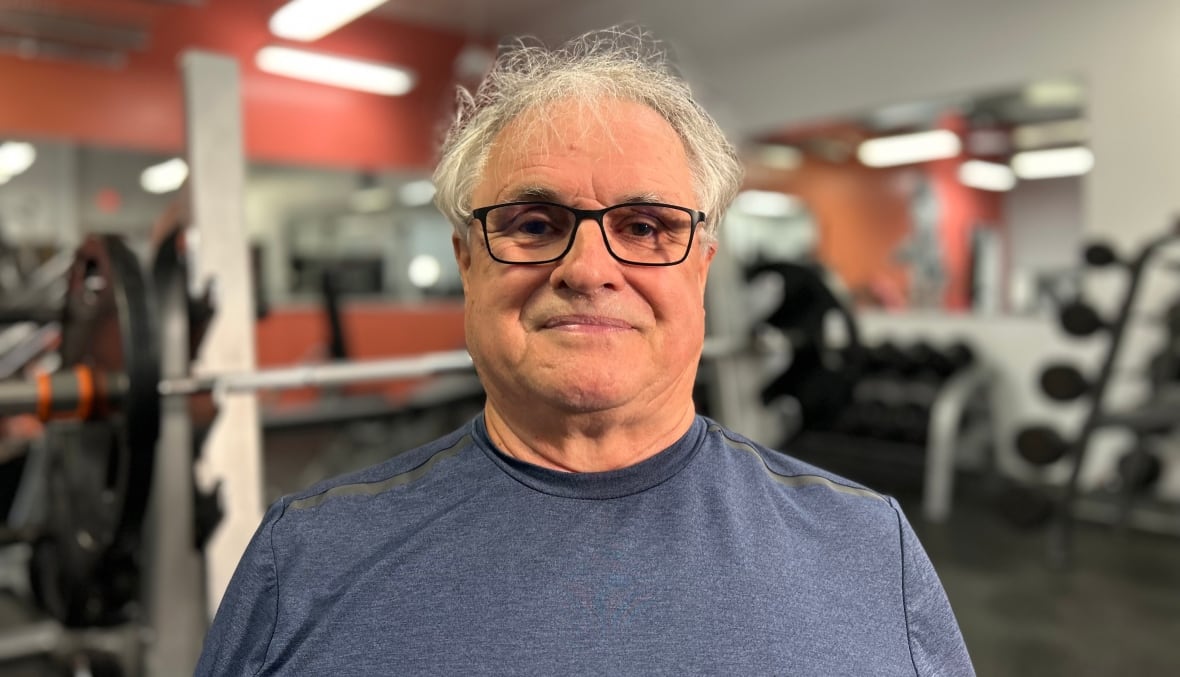 Neil Shea likes to get his exercise by lifting weights at the gym four to five times a week. (Rhythm Rathi/CBC)
Neil Shea likes to get his exercise by lifting weights at the gym four to five times a week. (Rhythm Rathi/CBC)
The Riverview, N.B., man was a gym-goer prior to his diagnosis, but started going more often post-surgery because of his participation in the study, he said.
“Once I did the study, it was that extra motivation to do a little more, to push a little more … and keep doing it.”
Shea, 73, said participating in the study made him realize that exercise is essential both for his recovery and his age.
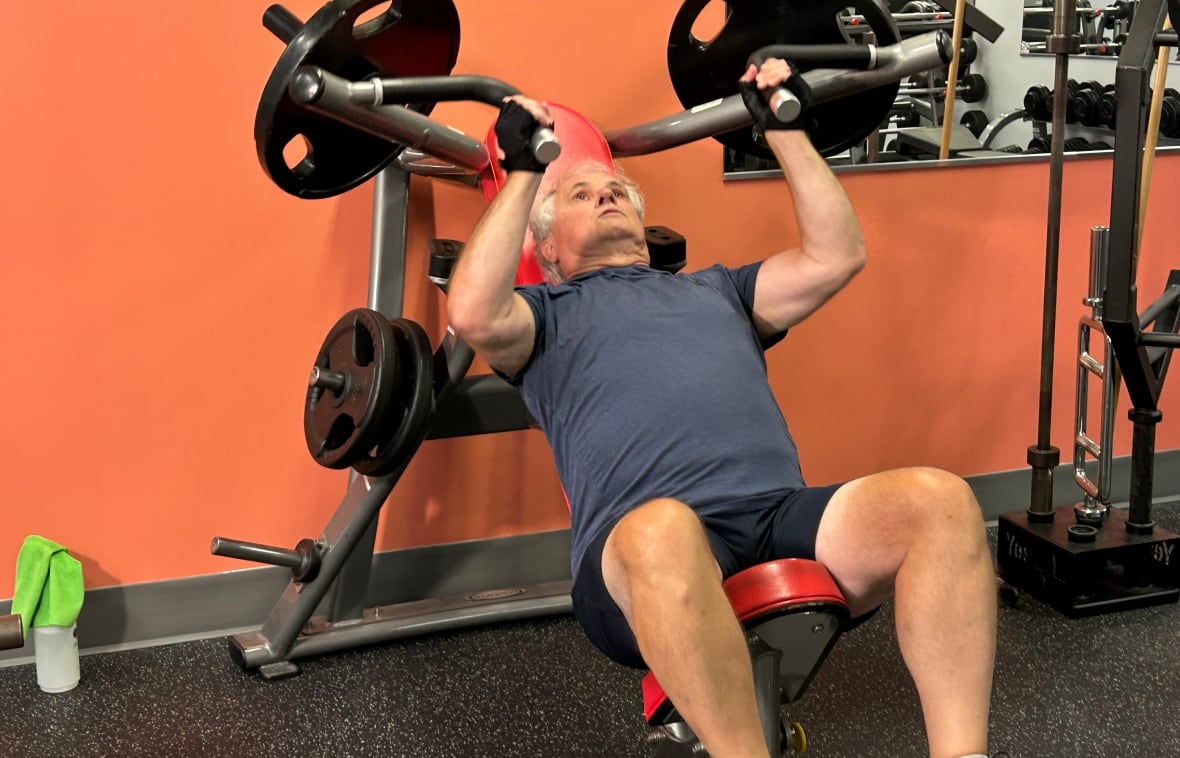 Shea underwent surgery and chemotherapy for his colon cancer in 2020. (Rhythm Rathi/CBC)
Shea underwent surgery and chemotherapy for his colon cancer in 2020. (Rhythm Rathi/CBC)
“You know, just get on the weights and do it, it doesn’t bother me that … cancer is going to be coming back or I might damage something.”
“Basically right now cancer is out of my mind. I put it behind me, I just want to move on from it,” he said.

